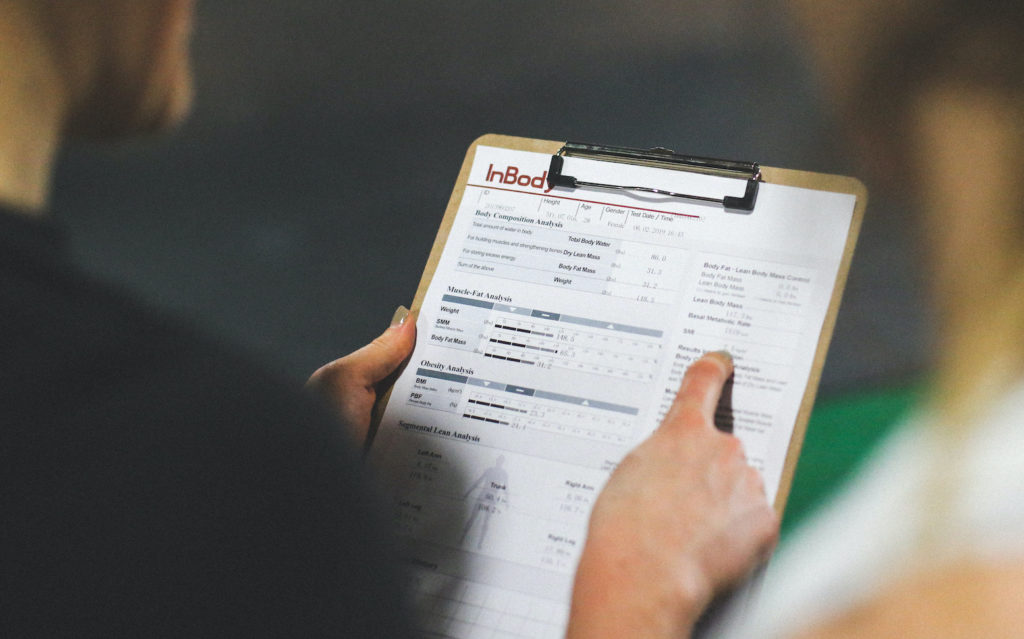
Many, many people have asked a fitness coach if it’s possible to lose fat “right here.”
When they ask, they always point to a body part. It might be the belly or perhaps the legs. Some point to the area underneath the arm, and others point to the neck.
All are asking if “spot reduction” works; i.e., can you choose exactly where you lose fat?
The answer: No, you can’t specify which fat you lose.
Doing exercises specifically for your area of concern won’t create changes in body fat at that location. For example, you won’t get rippling abs if you do 1,000 sit-ups a day. The body just doesn’t work like that. It won’t “take fat” from beside a working muscle. It will provide fuel to the muscle by using all the sources and systems available to it (there are many).
Further, genetic factors influence exactly where people carry body fat, and many find it easier to lose fat in some areas but not others.
But here’s the good news: A trained coach can help you change your overall body composition, which will likely result in changes to your area of focus, too.
Training the Whole Body
While you can’t drop fat from a specific location in the body, you can train to alter body composition. To do so, you’ll want to work with a coach to create an exercise regimen and nutrition plan to reduce overall body fat. In some cases, that’s a person’s sole goal, but in other cases people want to add some muscle, too. That’s possible—but it takes hard work.
Notice we mentioned exercise and nutrition? They’re almost inseparable when you want to change body composition. It’s just not possible to “exercise away a bad diet.”
In the kitchen, you’ll need to ensure you’re eating enough calories to support activity but not body fat. (A coach can help you do this.)
In the gym, your plan should include full-body exercises performed at moderate to high intensity levels. Again, a coach can help you determine what intensity level is appropriate for you—it will depend on many factors, including your training history, age and so on.
Full-body exercises use large muscle groups and require lots of energy—which means you’ll burn more calories. These exercises—think of squats, deadlifts, lunges, snatches—are also great for building muscle and increasing core strength.
Remember, we aren’t talking about bodybuilding exercises. Bodybuilders generally do “isolation movements” to grow as much lean tissue as they can, and their training regimes are often supported by lots of supplements and sometimes steroids. Instead, we’re talking about “compound movements” that use many joints at once and “functional movements” that allow you to do a lot of work quickly.
When you train the entire body with appropriate intensity and eat to support that activity, the result is increased general physical fitness and a “fit” appearance characterized by reduced body fat.
It’s not uncommon for people who train like this to have body-fat percentages of 14-24 (women) and 6-17 (men). That puts them in the realm of “athlete” and “fitness.”
It’s also important to remember that some people perform better in the gym with a little more body fat, and very low levels of body fat don’t always support athletic goals.
So how do you know what level of body fat is right for you? Book a free consultation HERE to talk to us about your goals—whether you’re focused on performance, appearance or some combination. We’ll tell you exactly how to accomplish your goals, and we’ll be happy to answer all your questions.
In the meantime, if you see a product or service that claims to reduce fat “right here,” you should be very skeptical. Fat loss is a result of exercise and nutrition, and your body will determine exactly where the changes are made.



